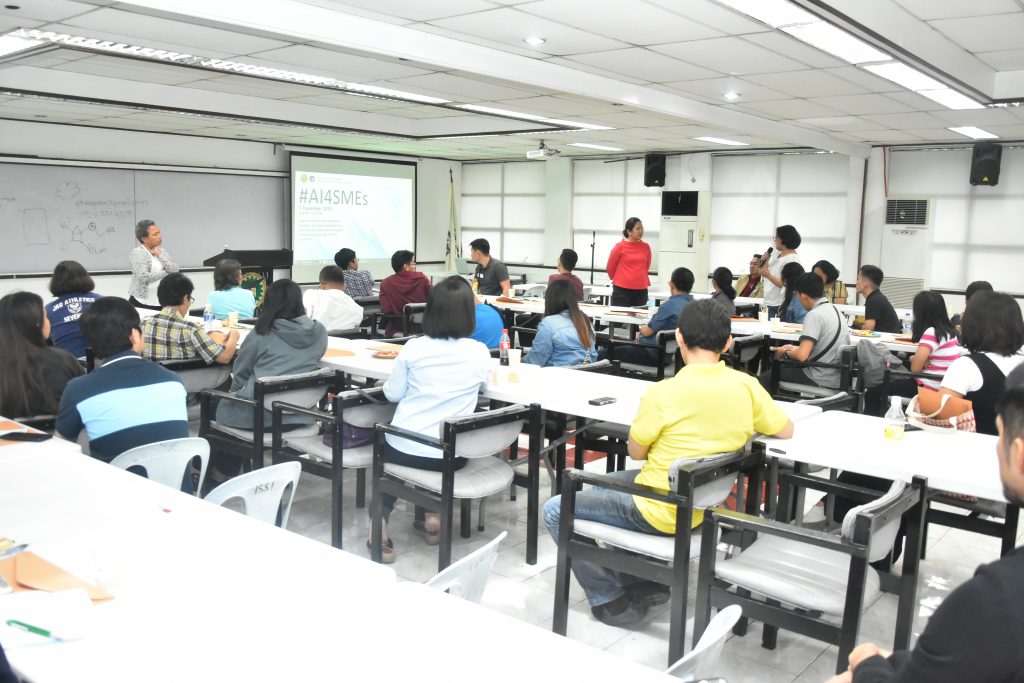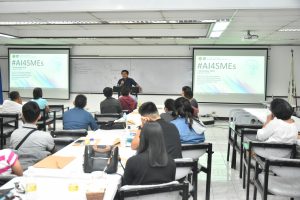Recent technological developments have been unprecedented in scale, scope and complexity, fundamentally changing the way we live, work and interact with one another. These changes bring a lot of uncertainty. Robotics, 3D technologies, Internet of Things, among others, transform ways of production, exponentially enhancing efficiencies and reducing costs. While this is a welcome improvement, qualms on how it would affect work abound. A number of studies reveal high probability of job loss in employments with high potential of automation. There are also forecasts of greater inequality resulting from technological disruptions, pushing further below the development spectrum the non-adopters.

Using simulation-based approach to model the impact of Artificial Intelligence and other advance technologies on the economy, McKinsey Global Institute (MGI) approximated these apprehensions in its September 2018 Discussion Paper entitled: “Notes from the AI Frontier: Modeling the Impact of AI on the World Economy”. Their econometric studies revealed three key findings:
(1) AI has large potential to contribute to global economic activity and that based on evidence, around 70% of companies are adopting at least one of the AI technologies and less than half of large companies may be using the full range of AI across their organization by 2030. Given these data, AI could potentially deliver additional economic output of around $13 trillion, and, boost gross domestic product by about 1.2% per year.
(2) The economic pact of AI may not be linear, but, may intensify over time. A slow start-up is likely due to costs and investments associated with learning and deploying technologies. However, adoption may accelerate driven by the cumulative effect of competition and complementary capabilities improvement. Further, AI adoption necessitates complementary management and process innovations. The benefits of these changes will build up in later years.
(3) Gaps between countries, companies, and workers may widen because of AI adoption. Current digital divide may be reinforced because of AI. Trailblazing countries could capture an additional 20-25% in net economic benefits, while developing countries may capture only about 5-15%. At the company level, organizations that have a more established digital culture could double their cash flow or an additional annual net cash flow growth of about 6% more. Companies that have strong digital base, higher propensity to invest in AI will benefit exponentially, potentially gaining three times more than followers. Meanwhile, laggards that do not adopt AI technologies at all or that have not fully absorbed them by 2030 …may experience around 20% decline in their cash flow from today’s levels, assuming the same cost and revenue model as today. At the employee level, jobs that require repetitive tasks and low digital skills may significantly decline by 40-30% in 2030, while those that require high cognitive and digital skills may increase by 40% to more than 50>% . Wage levels may also be affected. Jobs with repetitive tasks may stagnate or decrease from 33-20%. All these could cause widening gaps among countries, firms and workers.
Heeding these challenges, enablers are called on to invest in Research and Development and enhance capacity development. These interventions are hoped to equip institutions to be complementary factors for inclusive development and future-readiness. The Institute is taking an active role in addressing the challenge by initially increasing awareness on the Fourth Industrial Revolution (4ID) among micro, small and medium enterprises and other stakeholders. In the attempt to stimulate discourse on latest technologies and ignite ideas on how we could adapt and adopt, #AI4SMEs Learning Sessions were initiated last May and December 2019.
Speakers in the first run include: Vice Chancellor for Research and Development Fidel R. Nemenzo, and Dr. Ronnie Serfa Juan, an ASEAN Engineer and a Korea Research Fellow with Master of Science in Global Information and Telecommunication Studies from Waseda University in Tokyo, Japan; and a Doctor of Philosophy in Electronic Engineering degree from Cheongju University, Cheongju City, South Korea.

In the succeeding run, speakers come from wider fields. Dr. Alvin Culaba, Professor of Gokongwei College of Engineering, De La Salle University, gave a bird’s eye view on Artificial Intelligence (AI) and SMEs, backed up with significant figures and statistics. In his discussion, he dealt on the disruptive technological trends in the world and in the Philippines and their impact on organizations and societies. He emphasized on the idea of deep learning over machine learning and also elaborated on the Fourth Industrial Revolution.
Dr. Prospero C. Naval, Founder and CEO of Fish-I Analytics and Professor at the UP Diliman College of Engineering, Department of Computer Science, discussed AI Technology and Applications. He expounded on the specific applications of various AI technologies in business particularly the Fish-I which uses artificial intelligence for marine biodiversity assessment. Believing that AI is forever, he expressed his optimism on the impact it can make to people without becoming a slave of it. He pointed out also that AI may be coming slow in the country unlike in the other nearby nations but definitely it’s on its way there.
Other resource persons are Mr. Genesis Alegata, CEO and Head of Sales and Business Development of Senti AI; Dr. Nestor Tiglao, Founder and CEO of Adapsense; and Christine Marie V. Casal, Project Leader of Project SARAI. They gave comprehensive and in depth discussions on the following topics respectively: Getting Rid of Redundancies: Digitization of Business Processes; Being an Agent of Change: Providing Technology Solutions to Filipino Entrepreneurs; and Project SARAI: Smarter Approaches to Reinvigorate Agriculture.

While the Institute recognizes that a lot has to be done to make AI more palatable to its stakeholders, particularly micro, small, and medium enterprises, these initiatives serve as on-going pursuits to contribute to the country’s efforts to, as asserted by MGI, increase our capabilities to reap the potential of AI and be proactive in accelerating adoption.
Disclaimer: The views expressed herein or in any article in the UP ISSI website are those of the authors and do not necessarily reflect the policies or opinions of UP ISSI nor the views of the University of the Philippines. Regarding Accuracy of Information and Usage of Data: Visitors and users of the UP ISSI website are advised that information contained within the website is assumed to be accurate. However, errors can occur even with computer-generated information. UP ISSI makes no representation regarding the completeness, accuracy, or timeliness of such information and data, or that such information and data will be error-free. Visitors are encouraged to review the official version of all documents on which they plan to rely on.